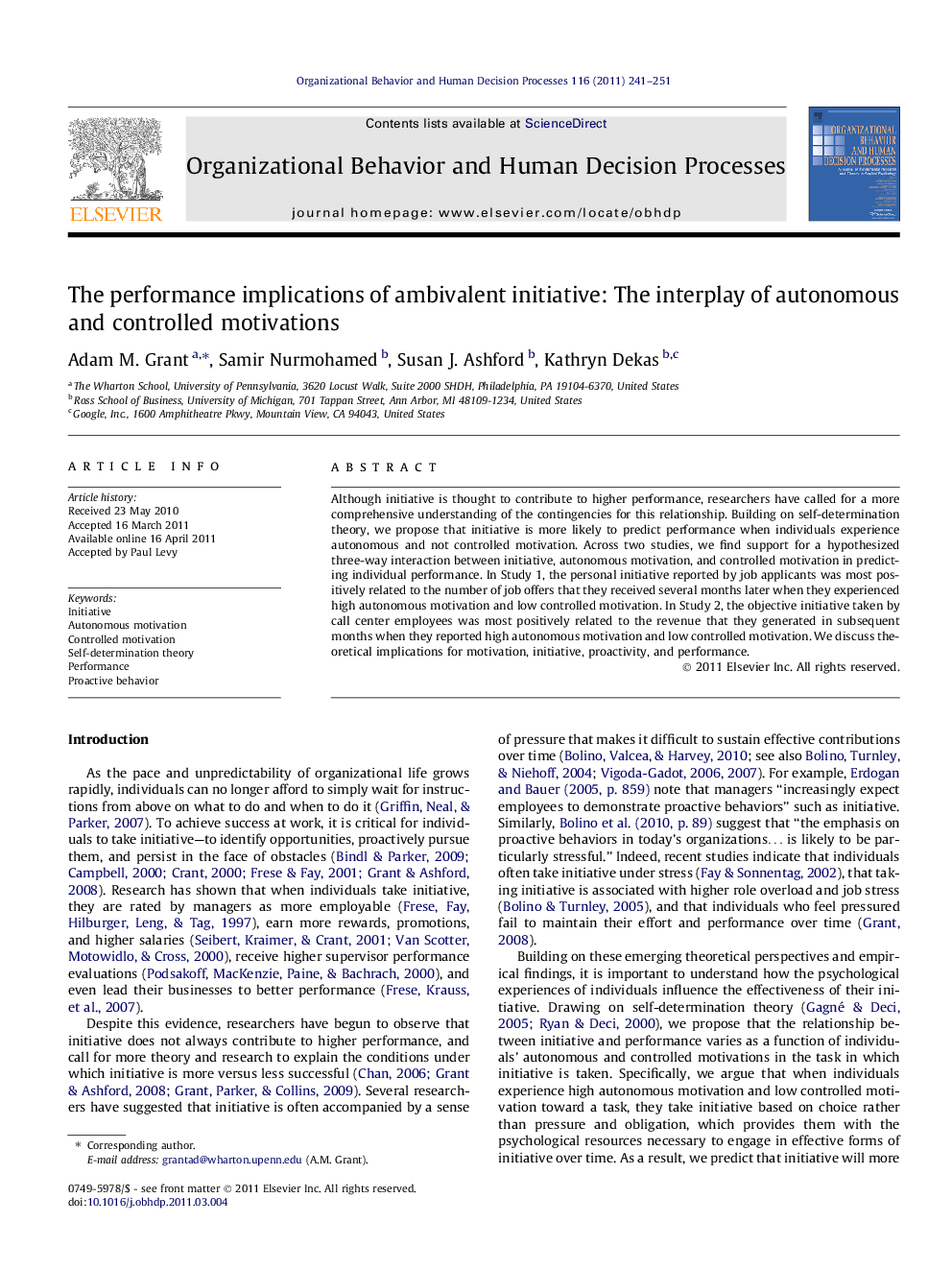| کد مقاله | کد نشریه | سال انتشار | مقاله انگلیسی | نسخه تمام متن |
|---|---|---|---|---|
| 888766 | 913568 | 2011 | 11 صفحه PDF | دانلود رایگان |

Although initiative is thought to contribute to higher performance, researchers have called for a more comprehensive understanding of the contingencies for this relationship. Building on self-determination theory, we propose that initiative is more likely to predict performance when individuals experience autonomous and not controlled motivation. Across two studies, we find support for a hypothesized three-way interaction between initiative, autonomous motivation, and controlled motivation in predicting individual performance. In Study 1, the personal initiative reported by job applicants was most positively related to the number of job offers that they received several months later when they experienced high autonomous motivation and low controlled motivation. In Study 2, the objective initiative taken by call center employees was most positively related to the revenue that they generated in subsequent months when they reported high autonomous motivation and low controlled motivation. We discuss theoretical implications for motivation, initiative, proactivity, and performance.
Journal: Organizational Behavior and Human Decision Processes - Volume 116, Issue 2, November 2011, Pages 241–251